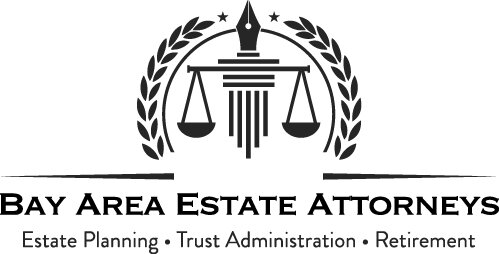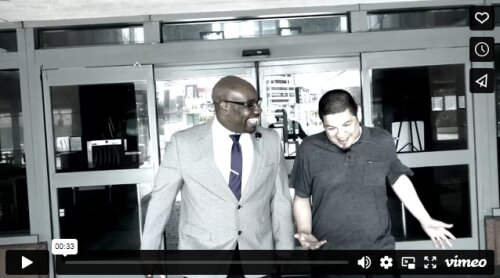Best Elder Law Lawyers in United States
Share your needs with us, get contacted by law firms.
Free. Takes 2 min.
Or refine your search by selecting a city:
List of the best lawyers in United States
United States Elder Law Legal Questions answered by Lawyers
Browse our 2 legal questions about Elder Law in United States and read the lawyer answers, or ask your own questions for free.
- Hi, I like to get the information about my deceased sister government pension in Sind Govt.
- I am living in usa and my sister was the govt employee in pakistan about 25 to 27 years. she was unmarried and my parents also passed. I like to know who will the benifits after her death. She passed during her job. I really appreciate it if you guide... Read more →
-
Lawyer answer by A A Abdullahi Law Firm
Hello, Her next of kin will be you and so you shall be the one to receive the benefits and her properties. You can contact us vfor assistance on the documentation and procession
Read full answer - How to protect property from squatters law
- Deed in my mom's name. She died 18 years ago. Son is named as administrator but not as owner. We live in USA so let Non relative live there for 45-50 year but had no formal contract. Let him live there free as long as he paid utilities and taxes.... Read more →
-
Lawyer answer by M BILAL ADVOCATES, CORPORATE & TAX CONSULTANTS
After completing probate to establish yourself as the legal heir, you can transfer the property title to your name and then grant them permission to reside there through a formal agreement. It is worthy to note that you can do...
Read full answer
About Elder Law in United States
Elder Law is a specialized area of legal practice that focuses on issues affecting the aging population. It encompasses a range of legal matters including estate planning, retirement benefits, healthcare, guardianship, Medicare/Medicaid, long-term care planning, and elder abuse. As the population of individuals aged 65 and older continues to grow in the United States, the importance of Elder Law has become increasingly significant, helping ensure that older adults receive the care and support they deserve.
Why You May Need a Lawyer
There are numerous scenarios in which an individual may benefit from consulting with an Elder Law attorney. These include planning for incapacity through powers of attorney and advance health care directives, navigating long-term care options, protecting assets from nursing home costs, ensuring eligibility for public benefits like Medicaid, addressing issues of elder abuse or neglect, and handling the legal facets of retirement and estate planning. Elder Law attorneys can provide valuable guidance and representation to help manage these complex issues effectively.
Local Laws Overview
Elder Law varies significantly across different states in the United States, as state laws often dictate how specific matters such as Medicaid eligibility, probate processes, and guardianship proceedings are handled. Key aspects of local laws that are particularly relevant to Elder Law include the Medicaid income and asset eligibility rules, the process for establishing wills and trusts, tax implications for seniors, legal procedures for appointing guardians or conservators, and mandates for reporting elder abuse or financial exploitation. Understanding these laws is essential for effectively navigating the legal challenges that can arise in elder care.
Frequently Asked Questions
What is the difference between a will and a trust?
A will is a legal document that outlines how a person's assets should be distributed after their death. A trust, on the other hand, is a legal arrangement where a trustee holds and manages assets on behalf of beneficiaries. Trusts can be effective during a person's lifetime and can help avoid probate.
How does Medicaid differ from Medicare?
Medicare is a federal program providing health coverage if you are 65 or older or have a severe disability, regardless of income. Medicaid is a need-based program that provides health care to low-income individuals, including elderly people needing long-term care.
What is a durable power of attorney?
A durable power of attorney is a legal document that grants someone else the authority to make decisions on your behalf if you become incapacitated. It remains in effect even if you become mentally incompetent.
When is guardianship necessary?
Guardianship may be necessary when an older adult is unable to make personal and financial decisions due to mental incapacity. It involves a legal process to appoint someone to make decisions on their behalf.
What constitutes elder abuse?
Elder abuse includes physical, emotional, financial, or sexual mistreatment of an older person. It also encompasses neglect, abandonment, and exploitation.
How can I protect my assets from nursing home costs?
Legal strategies such as creating irrevocable trusts, purchasing long-term care insurance, and planning for Medicaid eligibility can help protect assets from being depleted by nursing home costs.
What steps can I take to plan for incapacity?
Planning for incapacity involves creating legal documents like a durable power of attorney and advance healthcare directive to ensure your affairs are managed according to your wishes if you become unable to handle them yourself.
How does probate affect my estate?
Probate is a court-supervised process of distributing a deceased person's estate. It can be time-consuming and costly, but having a properly crafted estate plan can help minimize or avoid probate.
What legal rights do nursing home residents have?
Nursing home residents have rights under federal and state laws, including the right to privacy, informed consent, freedom from abuse, and the right to participate in their care and treatment decisions.
How can I report elder abuse or neglect?
If you suspect elder abuse, you can report it to local Adult Protective Services, law enforcement agencies, or a trusted Elder Law attorney who can advise you on the appropriate steps to take.
Additional Resources
For those seeking more information or assistance in Elder Law, the following resources can be invaluable:
- National Academy of Elder Law Attorneys (NAELA)
- American Bar Association's Commission on Law and Aging
- State-specific elder law resources and bar associations
- Sixty Plus Legal Program
- Local Area Agencies on Aging
Next Steps
If you believe you could benefit from legal assistance in the field of Elder Law, consider the following steps:
- Identify specific issues or concerns you have regarding aging, healthcare, or estate planning.
- Research and reach out to a qualified Elder Law attorney in your area for a consultation.
- Prepare relevant documents and information about your financial and health situation before your meeting.
- Discuss your goals and ensure that the attorney provides a clear understanding of their counsel and potential outcomes.
By connecting with the right legal professionals and resources, you can effectively navigate the complexities of Elder Law and ensure peace of mind for yourself and your loved ones.
Lawzana helps you find the best lawyers and law firms in United States through a curated and pre-screened list of qualified legal professionals. Our platform offers rankings and detailed profiles of attorneys and law firms, allowing you to compare based on practice areas, including Elder Law, experience, and client feedback.
Each profile includes a description of the firm's areas of practice, client reviews, team members and partners, year of establishment, spoken languages, office locations, contact information, social media presence, and any published articles or resources. Most firms on our platform speak English and are experienced in both local and international legal matters.
Get a quote from top-rated law firms in United States — quickly, securely, and without unnecessary hassle.
Disclaimer:
The information provided on this page is for general informational purposes only and does not constitute legal advice. While we strive to ensure the accuracy and relevance of the content, legal information may change over time, and interpretations of the law can vary. You should always consult with a qualified legal professional for advice specific to your situation.
We disclaim all liability for actions taken or not taken based on the content of this page. If you believe any information is incorrect or outdated, please contact us, and we will review and update it where appropriate.
Browse elder law law firms by state in United States
Refine your search by selecting a state.

















